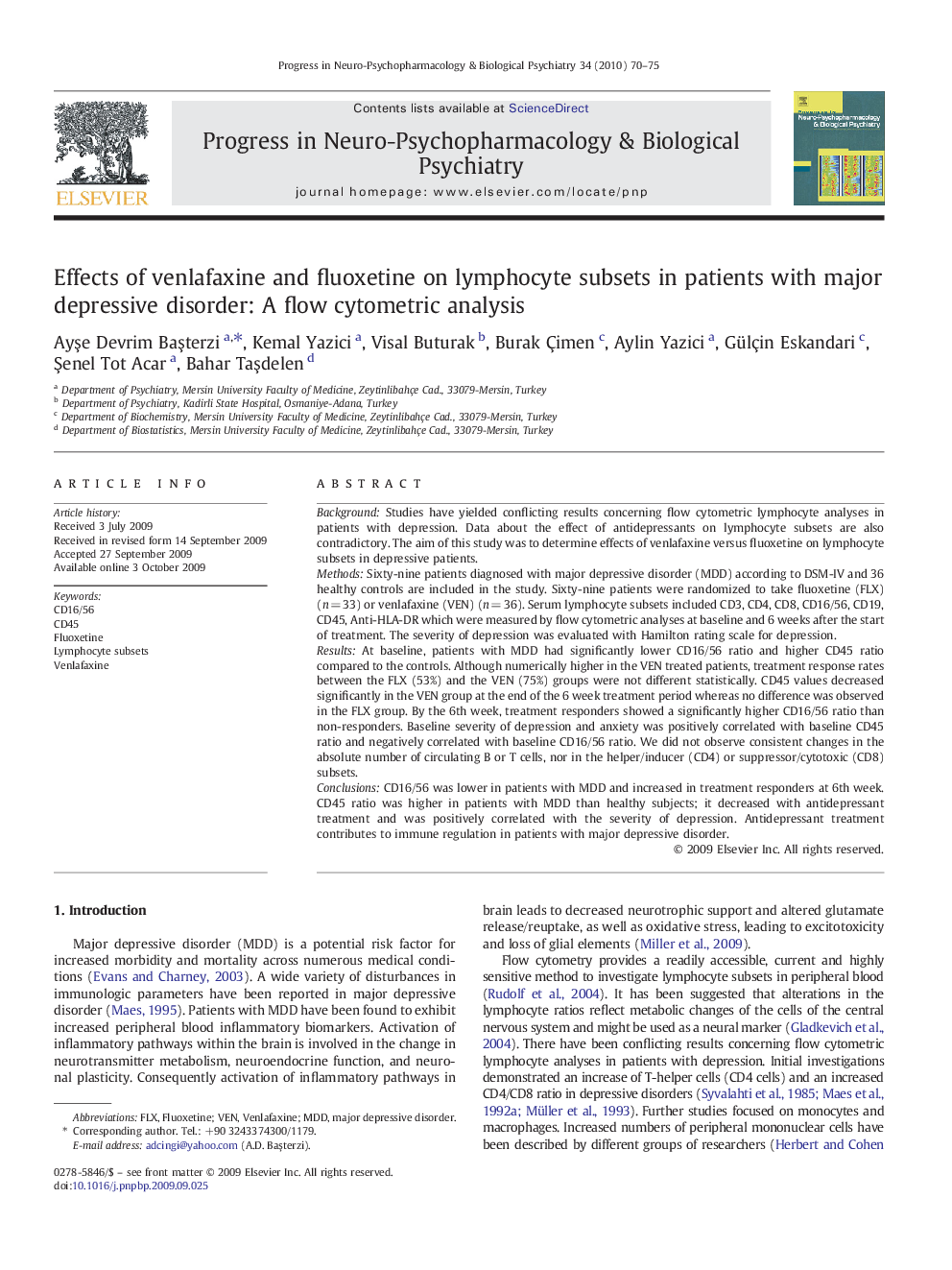| Article ID | Journal | Published Year | Pages | File Type |
|---|---|---|---|---|
| 2565170 | Progress in Neuro-Psychopharmacology and Biological Psychiatry | 2010 | 6 Pages |
BackgroundStudies have yielded conflicting results concerning flow cytometric lymphocyte analyses in patients with depression. Data about the effect of antidepressants on lymphocyte subsets are also contradictory. The aim of this study was to determine effects of venlafaxine versus fluoxetine on lymphocyte subsets in depressive patients.MethodsSixty-nine patients diagnosed with major depressive disorder (MDD) according to DSM-IV and 36 healthy controls are included in the study. Sixty-nine patients were randomized to take fluoxetine (FLX) (n = 33) or venlafaxine (VEN) (n = 36). Serum lymphocyte subsets included CD3, CD4, CD8, CD16/56, CD19, CD45, Anti-HLA-DR which were measured by flow cytometric analyses at baseline and 6 weeks after the start of treatment. The severity of depression was evaluated with Hamilton rating scale for depression.ResultsAt baseline, patients with MDD had significantly lower CD16/56 ratio and higher CD45 ratio compared to the controls. Although numerically higher in the VEN treated patients, treatment response rates between the FLX (53%) and the VEN (75%) groups were not different statistically. CD45 values decreased significantly in the VEN group at the end of the 6 week treatment period whereas no difference was observed in the FLX group. By the 6th week, treatment responders showed a significantly higher CD16/56 ratio than non-responders. Baseline severity of depression and anxiety was positively correlated with baseline CD45 ratio and negatively correlated with baseline CD16/56 ratio. We did not observe consistent changes in the absolute number of circulating B or T cells, nor in the helper/inducer (CD4) or suppressor/cytotoxic (CD8) subsets.ConclusionsCD16/56 was lower in patients with MDD and increased in treatment responders at 6th week. CD45 ratio was higher in patients with MDD than healthy subjects; it decreased with antidepressant treatment and was positively correlated with the severity of depression. Antidepressant treatment contributes to immune regulation in patients with major depressive disorder.
